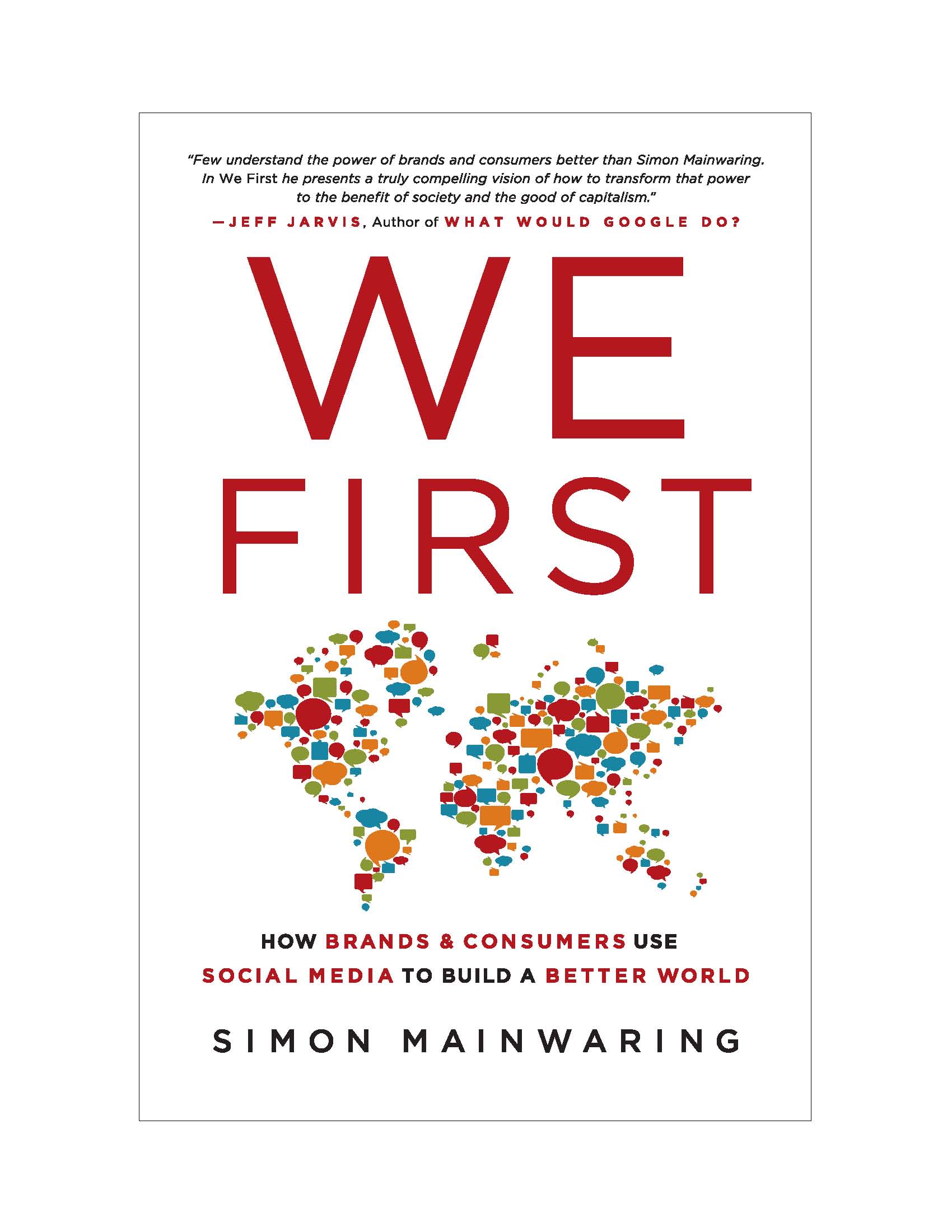Book Review: We First
 Editor’s Note: below is a review of the Social Enterprise Book Club book for October, We First: How brands & consumers use social media to build a better world by Simon Mainwaring. We’re excited to by hosting Mr. Mainwaring for an open conference call on November 8 to discuss his book. Stay tuned for more information and your opportunity to RSVP.
Editor’s Note: below is a review of the Social Enterprise Book Club book for October, We First: How brands & consumers use social media to build a better world by Simon Mainwaring. We’re excited to by hosting Mr. Mainwaring for an open conference call on November 8 to discuss his book. Stay tuned for more information and your opportunity to RSVP.
By Aaron Lesser
Which side of the Occupy Wall Street Protests are you on? Are you for the movement? Against it? Are you part of the 99%? The 1%? How about the 53%? Do you support the inertia behind the movement but not its expression? Do you think those people should just get a job?
Simon Mainwaring’s book, We First: How Brands & Consumers Use Social Media To Build a Better World, offers a way forward in the debate about our future. It’s not about separating people into opposing groups or blaming sections of society—it’s an examination of where our society is and how we can steer it towards where we want it to be.
The book opens with a simple question: Is this the world you want? Regardless of where we are in relation to the past, chronic food shortages, disease, poverty, and inequality are still powerful negative forces in modern society. We First outlines what Mainwaring calls The New Capitalist Manifesto. It is not a revolution against our system, but an evolution into an economic system that takes its impacts on society into account.
The movement, We First, is in opposition to the thought process historically associated with capitalism, Me First. Although capitalism is motivated by self-interest, Mainwaring argues that its true strength is not its ability to serve the individual, but in its ability to make individual self-interest benefit society. By changing the standards by which corporations judge success, from purely bottom line profit and loss to social impact, we can use the engine of capitalism to create the world we want.
But why, after hundreds of years of Me First capitalism, would the whole system change? The answer, for Mainwaring, lies in social media. Social media allows corporations and consumers to interact in a new way. Consumers can give instant feedback on products or marketing campaigns and corporations can interact with consumers at all times. Consumers can let corporations know what they want, what causes they are interested in, or in what direction they want the company to go. This allows corporations to engage in social good endeavors without affecting their bottom line. They can find causes their consumers are interested in and build a loyal base of followers by pursuing actions that benefit that cause. This interaction is the innovation in this book: with the rise of social networks, the social capital a company can generate by being environmentally friendly or starting social ventures is just as valuable in the long term as traditional capital.
A few forward thinking companies are already implementing Mainwaring’s vision. The Pepsi Refresh project is the best example of the budding We First movement. Pepsi selects 1,000 social good ventures, initiated by individuals or organizations, to compete for funding from Pepsi. These ventures are posted on Pepsi Refresh’s website and anybody can vote for them. The top vote getters receive funding. PepsiCo not only gets goodwill and brand loyalty, but according to Mainwaring the Pepsi Refresh website now gets more visitors than many of the sites Pepsi advertises on. In other words, the cost of giving money to the social ventures is offset by the social capital PepsiCo is earning.
We First is the kind of philosophy we need in a time of division, in a time where the only thing most people can agree upon is that this is not the world we want. We First is about eliminating the barriers between us and using our human qualities in capitalism to create the world we want.
11 notes
 freedomforeverybody118 liked this
freedomforeverybody118 liked this  trampoline6s-blog reblogged this from startsomegood
trampoline6s-blog reblogged this from startsomegood angkordigital-blog reblogged this from startsomegood
clemauyeung-blog reblogged this from startsomegood
joshuawo liked this
medeaeva liked this
startsomegood posted this
